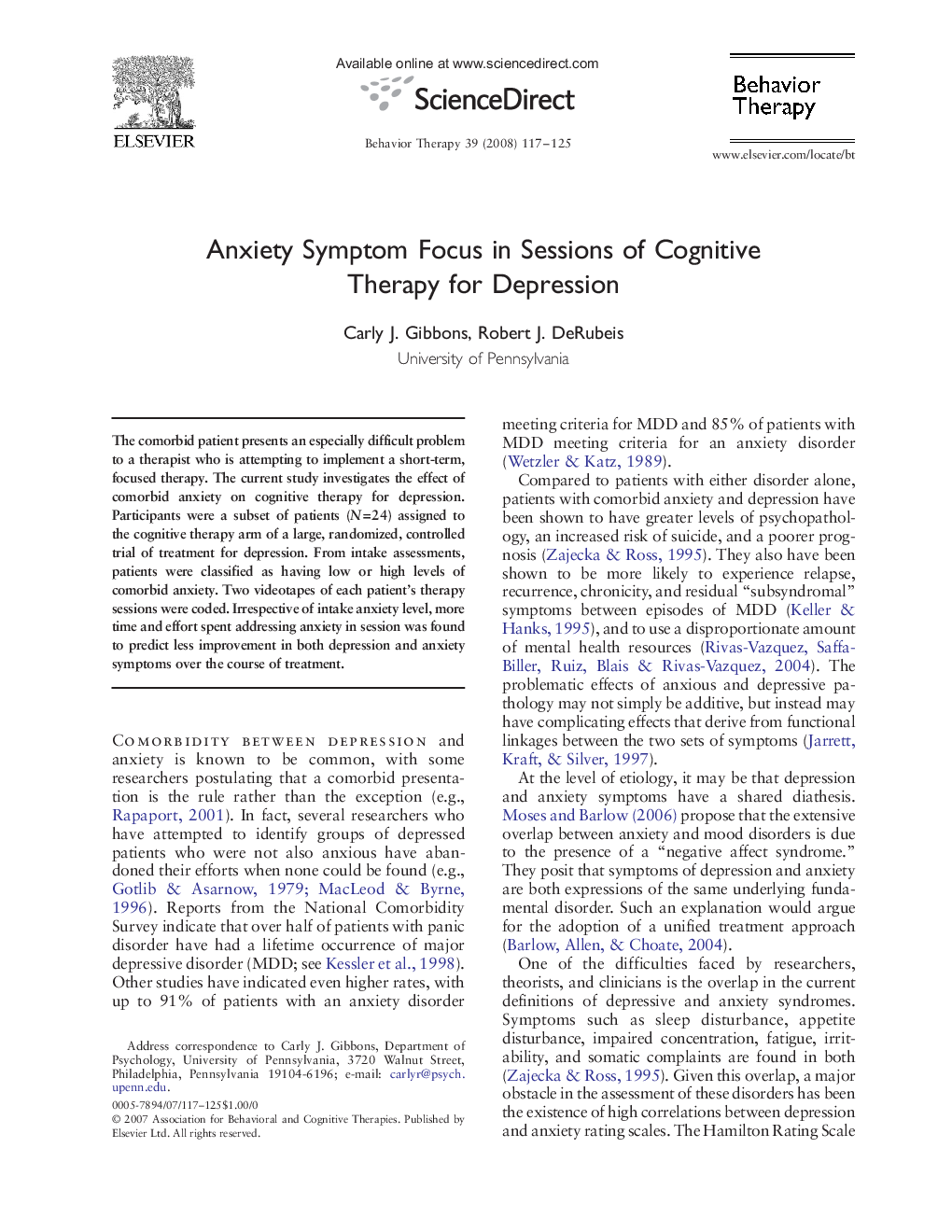| Article ID | Journal | Published Year | Pages | File Type |
|---|---|---|---|---|
| 901660 | Behavior Therapy | 2008 | 9 Pages |
The comorbid patient presents an especially difficult problem to a therapist who is attempting to implement a short-term, focused therapy. The current study investigates the effect of comorbid anxiety on cognitive therapy for depression. Participants were a subset of patients (N = 24) assigned to the cognitive therapy arm of a large, randomized, controlled trial of treatment for depression. From intake assessments, patients were classified as having low or high levels of comorbid anxiety. Two videotapes of each patient’s therapy sessions were coded. Irrespective of intake anxiety level, more time and effort spent addressing anxiety in session was found to predict less improvement in both depression and anxiety symptoms over the course of treatment.
